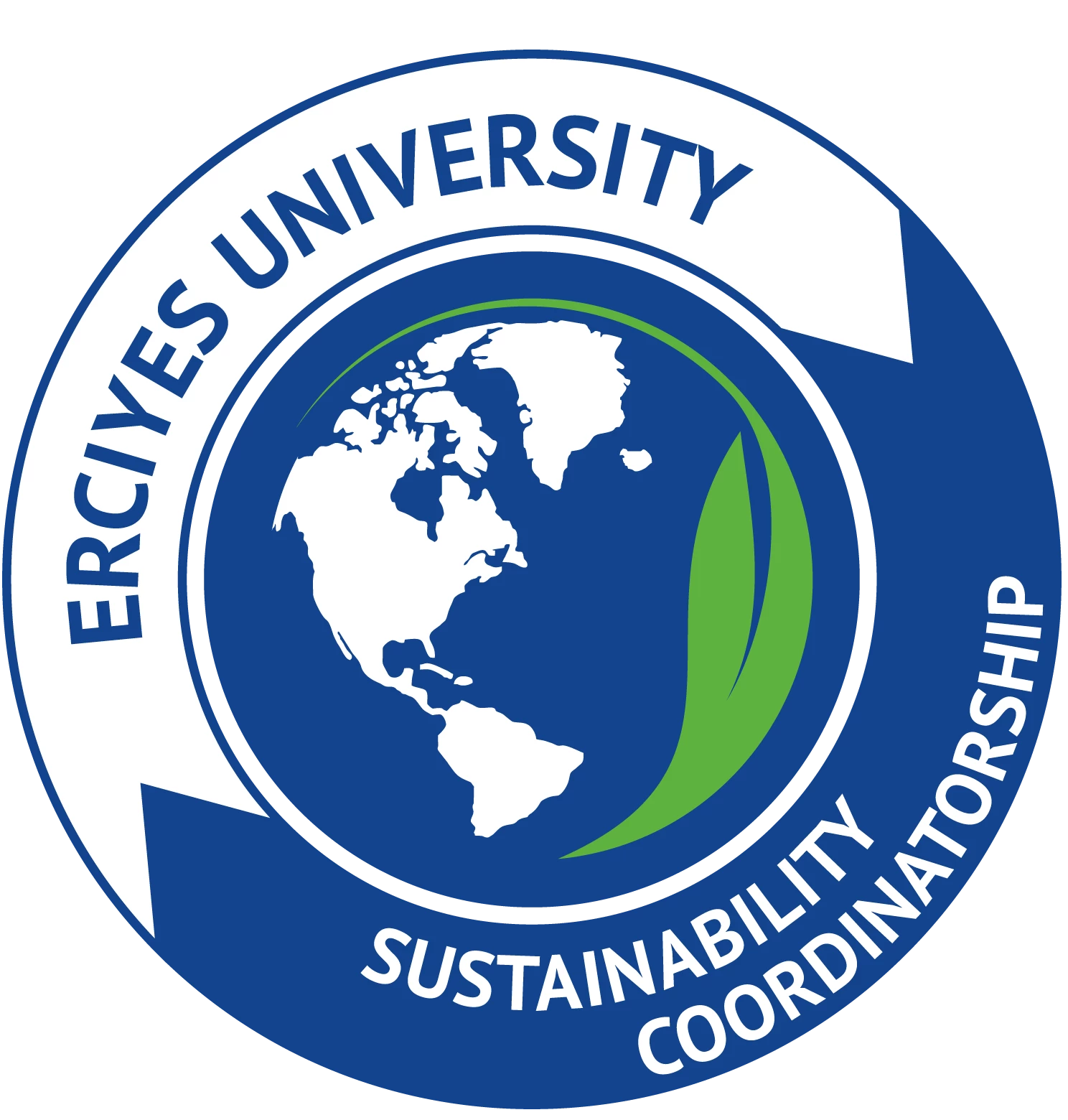ERCİYES UNIVERSITY
SUSTAINABLE UNIVERSITY POLICIES AND STRATEGIES
Sustainable development is one of the most critical issues for the future of the entire world. The Sustainable Development Goals (SDGs) provide a common international framework for concrete action. In 2015, the United Nations, through 17 goals adopted by 193 countries, aimed to end poverty, protect our planet, and ensure sustainable development and prosperity by 2030. The SDG framework ensures social cohesion, economic prosperity, and environmental protection. The concept of sustainability has become a priority for many universities. Education, research, and innovation play a highly significant role in helping societies achieve SDG goals. Universities, as an important part of civil society, aim to create a more sustainable way of life for future generations.
Erciyes University (ERU) aims to embed sustainability as a core value at the university through its sustainability policy. Our university has the opportunity to see its strengths and weaknesses by being included in global ranking systems that measure in line with the SDGs and is updating its long-term goals and policies, particularly in its 2022-2026 strategic plan. ERU is committed to creating a positive impact with its sustainability performance and taking a leading role in this regard. With this commitment, ERU students, faculty, and staff should actively play a role in sustainability as responsible representatives of society.
At the core of ERU's sustainable university policy is a corporate governance approach focused on sustainable future strategies that benefit society, positioning itself among leading universities in social, environmental, and economic development. Our university's sustainability policy is structured around 4 main areas:
1. Institutional Sustainability: Our university ensures the integration and coordination of social, environmental, and economic sustainability in a balanced way to achieve the SDGs. Through contemporary education programs, our university cultivates individuals who respond to the current and future needs of society and respect ethical values. Our university continuously monitors and evaluates its sustainability performance and, by identifying and improving its weaknesses with short, medium, and long-term strategies, aims to offer solutions to major global challenges.

2. Social Sustainability: The aim is to create a campus where the quality of life is elevated for all individuals and to establish partnerships that enhance sustainable prosperity with national and international communities.

3. Environmental Sustainability: Our university aims to contribute to solutions in tackling environmental issues through research activities and collaborations on national and international platforms. It is aimed to improve existing efforts and create an exemplary campus with environmental protection awareness in areas such as climate change, energy efficiency, water conservation, waste management, and transportation.

4. Economic Sustainability: The goal is to increase our university's research activities in the fields of industry and innovation, support local and sustainable production, and provide a skilled workforce, which is a fundamental input for our country's economy.

GOALS
1. Increasing efforts to combat poverty,
2. Establishing effective and sustainable food management on campus,
3. Enhancing practices that support healthy individuals and quality lifestyles,
4. Increasing lifelong learning activities,
5. Expanding campus practices that support women,
6. Raising awareness of gender equality,
7. Ensuring the protection of water resources through conscious water use,
8. Providing awareness for the protection of marine life and ecosystems,
9. Providing awareness for the protection of terrestrial life and land ecosystems,
10. Increasing awareness of climate change and promoting the use of renewable energy sources,
11. Using energy efficiently in buildings and preventing energy waste,
12. Increasing the participation rate in employment by supporting students' professional and personal development,
13. Ensuring a healthy and safe working environment,
14. Increasing the potential for R&D and innovation,
15. Increasing integration efforts of disadvantaged groups into society.
STRATEGIES
1. Promoting a culture of sustainability on our campus and in the broader community by playing a positive and proactive role in sustainability leadership,
2. Increasing research and engagement toward sustainability,
3. Embedding sustainability in the university's management and decision-making processes,
4. Setting measurable targets in sustainability-related activities,
5. Involving staff and students at all levels in the sustainability process,
6. Utilizing the university's financial resources effectively and efficiently in line with sustainable university activities and making necessary infrastructure investments for prioritized activities.
7. Applying effective, long-lasting solutions that integrate the environmental, social, and economic aspects of sustainability to reflect sustainability impacts in our institutional behaviors and policies.
8. Strengthening the institutional infrastructure for monitoring and evaluating sustainability activities.




